The eCommerce industry has skyrocketed since the beginning of the 2000’s, generating billions of dollars in revenue each year. When establishing and building the presence of an eCommerce storefront, understanding what is eCommerce marketing is essential before you get started.
When you know your audience’s wants and needs and have a deeper understanding of how to deliver high-quality results, you can create a truly effective eCommerce marketing strategy that is right for you.
Set Goals
Establishing an eCommerce brand or storefront is not an overnight process. In fact, it typically requires commitment and dedication when creating content, utilizing keywords, and even creating backlinks that are beneficial to your website and its SEO, or search engine optimization.
In order to maximize your overall productivity and efficiency as an e commerce marketeer, it is best to set goals. Setting goals for any eCommerce presence is highly recommended to avoid getting distracted or finding yourself missing the mark it comes to making sales, acquiring new customers, and generating revenue.
Identify You Target Consumer
When learning what is eCommerce marketing, it is important to first learn about the target consumer you want to appeal to with your eCommerce brand and the products or services you intend to sell. Identifying your target customer is one of the most pivotal steps in fleshing out a working commerce marketing strategy that produces results. While you are in the process of identifying your target consumer, ask yourself the following questions:
- What demographics am I targeting with my eCommerce store? What age range, location, and gender is most likely to respond to the products or services I intend to sell using my eCommerce storefront?
- What platforms or methods work best to connect with prospective shoppers I want to reach? How can I effectively convey the message I wish to share regarding my eCommerce store with my target shoppers on my current budget?
- How will I be tracking the overall effectiveness of each marketing campaign or promotion I launch?
- Am I solving problems and/or addressing specific pain points that my consumers may have? If not, how can I solve a problem to motivate shoppers to complete their purchases?
- Which emotions will I appeal to when promoting my eCommerce store and products, and why?
Map Out a Vision for Your eCommerce Brand
What type of impression do you want to give off when users visit your eCommerce website and storefront for the first time? Are you a casual brand, or a high-class expensive brand with a cult following? Do you want to appear extremely fun and easygoing, or serious and studious? Map out a vision for your eCommerce brand, which will come in handy once you begin developing logos, color schemes, and the overall look and feel of your website and online presence.
Determine KPIs That Are Right for You
Consider which KPIs, or key performance indicators are most important to you for your eCommerce store. What key performance indicators are you focused on and which are most likely to help you reach both the short and long-term goals you have set for your store.
Are you focused on content marketing, reducing your abandoned shopping cart rate, or even on the overall sales and you are able to generate with different campaigns you have launched? Take the time to consider the key performance indicators that are most valuable to you when developing your eCommerce marketing strategy.
Optimize Your Website and Online Presence
Optimizing your website as well as your entire online presence is imperative for any eCommerce storefront or brand. Without properly optimizing your website, users may find it difficult to locate your store and products, even if your product is currently in-demand. Properly and effectively optimizing not only your website and blog, but also your social media presence can significantly impact the reach you are able to get online.
Brand Your eCommerce Store
Branding your eCommerce store is a must, whether you are entering the eCommerce market for the first time or if you are looking to scale an existing online brand and storefront. Choosing the color scheme, logo, and overall aesthetic for your eCommerce brand matters, especially if you are also entering a highly competitive market or niche within the eCommerce realm.
If you are unsure of where to begin or if you do not consider yourself to be the creative type, spend time researching and comparing the aesthetics and logos of your preferred top competitors. Immerse yourself within the community of your competition to discover the best tools for communication and the best vehicles for marketing the same type of products or services you provide to your followers and customers.
Launch Your eCommerce Storefront
After you have determined who you intend to target and you have crafted a well-thought-out logo and look for your eCommerce brand, you can begin working on launching your official storefront. Building a storefront for your brand from scratch may require extensive programming and design knowledge, so it may be best to stick with a program, service, or solution that is readily available if you want to get started right away.
One of the most popular tools used to create a flexible eCommerce storefront includes WordPress with the extension WooCommerce. Using WooCommerce in conjunction with WordPress is one of the most robust methods of building a creatively open-ended storefront of your dreams. Here is what the WooCommerce plugin looks like:
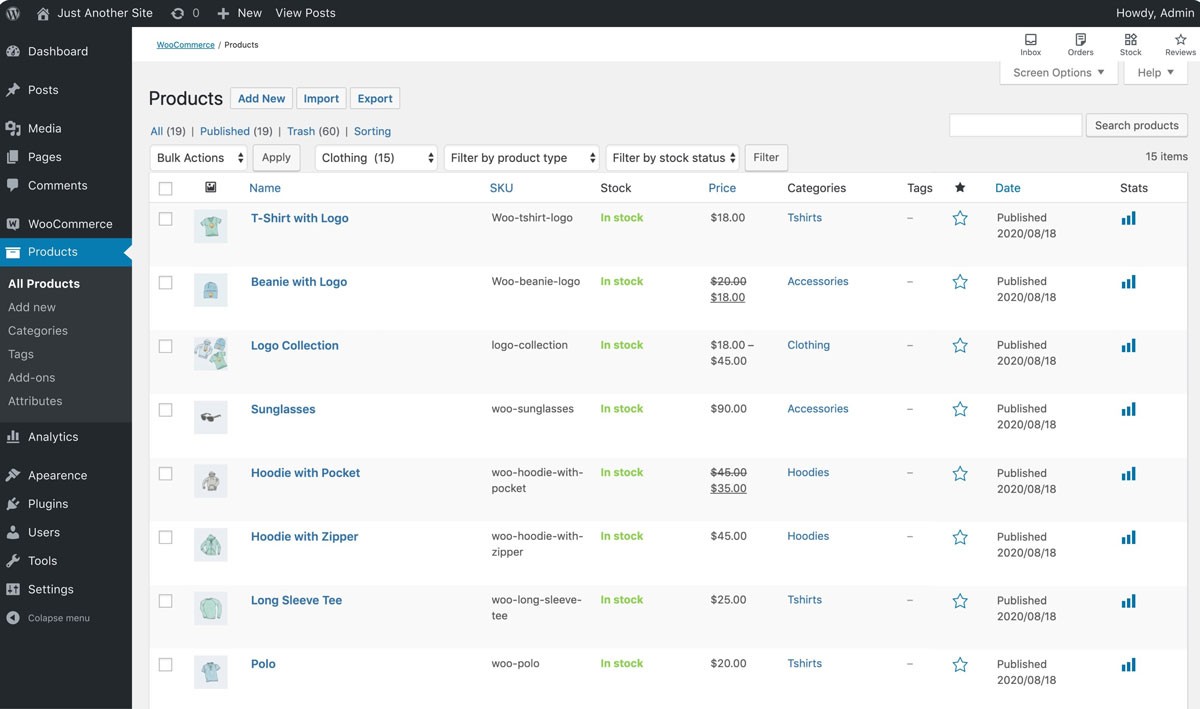
(Image Credit: WordPress)
If you are not familiar with basic WordPress features and functions, you may opt for an eCommerce storefront host, such as Shopify. All-in-one services such as Shopify can help you to get started with your storefront right away, even with little to no programming and design experience of your own.
You Might Also Like
Create and Launch Your Social Media Presence
Launching a social media presence for your eCommerce brand and your official eCommerce storefront is one of the most important aspects to remember when creating an eCommerce strategy that works. The use of social media opens many doors to maximize your reach and to boost your website’s online visibility within local and international search results.
Improve your content marketing + SEO in 60 seconds!
Diib uses the power of big data to help you quickly and easily increase your traffic and rankings. We’ll even let you know if you already deserve to rank higher for certain keywords.
- Easy-to-use automated SEO tool
- Get new content ideas and review existing content
- Checks for content localization
- SEO optimized content
- Built-in benchmarking and competitor analysis
- Over 500,000k global members
Used by over 500k companies and organizations:
Syncs with 
Boost Your eCommerce Store’s SEO
In order to gain traction online, SEO, or search engine optimization, is one area that cannot be looked, especially for eCommerce storefronts or brands based solely online. SEO is used to help determine the overall weight and ranking of a website and how it appears within top search engine results. Search engines such as Google, DuckDuckGo, Yahoo!, and Bing, receive most of the web’s traffic each day.
Online shoppers typically go to their preferred search engine to browse for products, services, and even local stores or providers near them prior to making a purchase. In order to gain the trust of shoppers, boosting your eCommerce store’s SEO and improving your ranking within the top search engines today can make all of the difference.
Conduct Trend, Hashtag, and Keyword Market Research
Spend time conducting trend, keyword, and hashtag market research as it pertains to your corner in the eCommerce market. If you are selling sports-themed baseball caps, be sure to research top trends within sporting apparel as well as top-selling baseball caps in your preferred niche or market.
Use tools such as Google Trends as well as Google Ads to research trends and terms and to discover more about the popularity of various hashtags and trending phrases. Keyword and trend market research also provides valuable insight into the wants and needs of the demographics you want to reach with your own online store and brand. The more familiar you become with various keywords, hashtags, and trendy phrases, the easier it will be to cultivate engaging and useful content, updates, and shareable promotions for your users and online fans. The image below shows what Google Trends looks like:
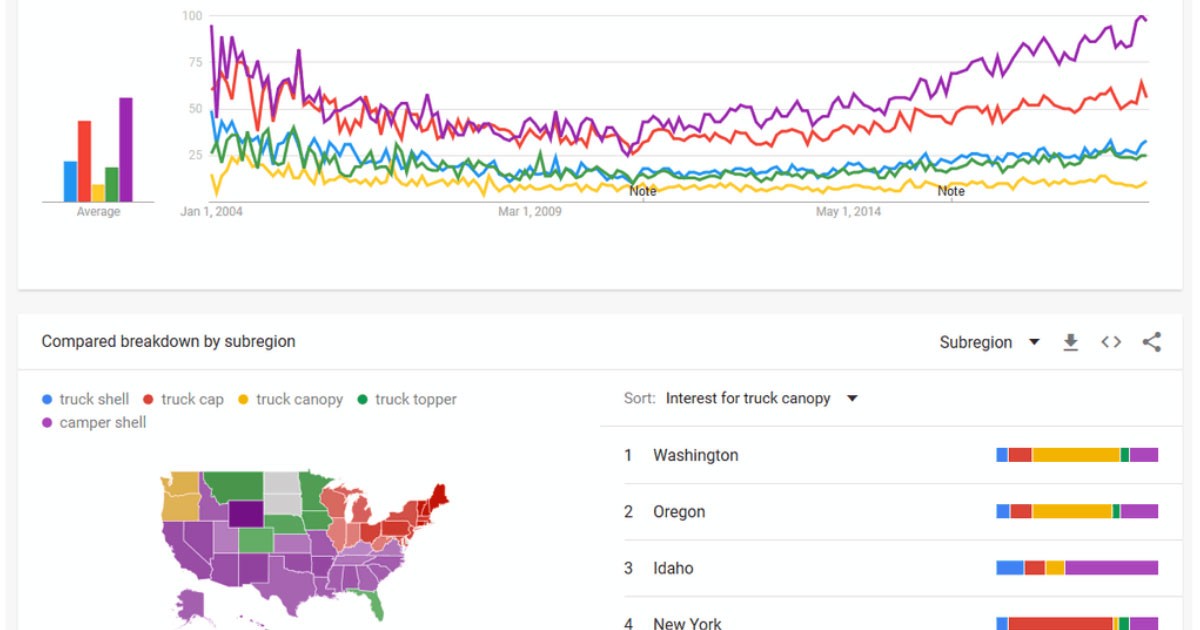
(Image Credit: Bruce Clay)
Create a Working Content Strategy
Having a modern, professional, and robust eCommerce storefront is not enough to achieve ultimate success online. Without a working content strategy, establishing yourself as a professional and authoritative source becomes extremely difficult.
Providing your visitors and loyal customers with ongoing content is a way to gain trust and to keep them coming back to your store in the future for repeat business. A working content strategy can also provide you with a platform to share your own knowledge and expertise as it relates to your eCommerce store products and services.
When working on your content marketing strategy, consider the type of information you intend to share along with its purpose. How will your content help your visitors and readers? Will your content motivate users to complete their purchase, or it is to simply inform them of your own authority and professionalism? Setting goals and determining what you want to get out of your content marketing strategy is essential for any type of eCommerce store.
Incorporate Your Social Media Presence With Your eCommerce Storefront
Incorporating your social media presence with your official eCommerce storefront is extremely beneficial for marketing and promotional purposes. Whether you primarily use Facebook to promote your eCommerce products or if you have an eCommerce branded account on Facebook, Twitter, Instagram, and even Pinterest, maximize your reach and online visibility by linking and incorporating your social media presence with your official eCommerce store.
In addition to sharing content and cross-promoting links and blogs to your social media and to your eCommerce store, you can also incorporate your social media presence on your official shop with various tools and plugins. Using social media plugins, encourage your current visitors to share content and to spread the word about your website with just one click. Use various social media sharing plugins to help collect user data and to track which pieces of content and pages on your eCommerce store are most popular. The image below has another option of using social media buttons so the user can share your content easily:
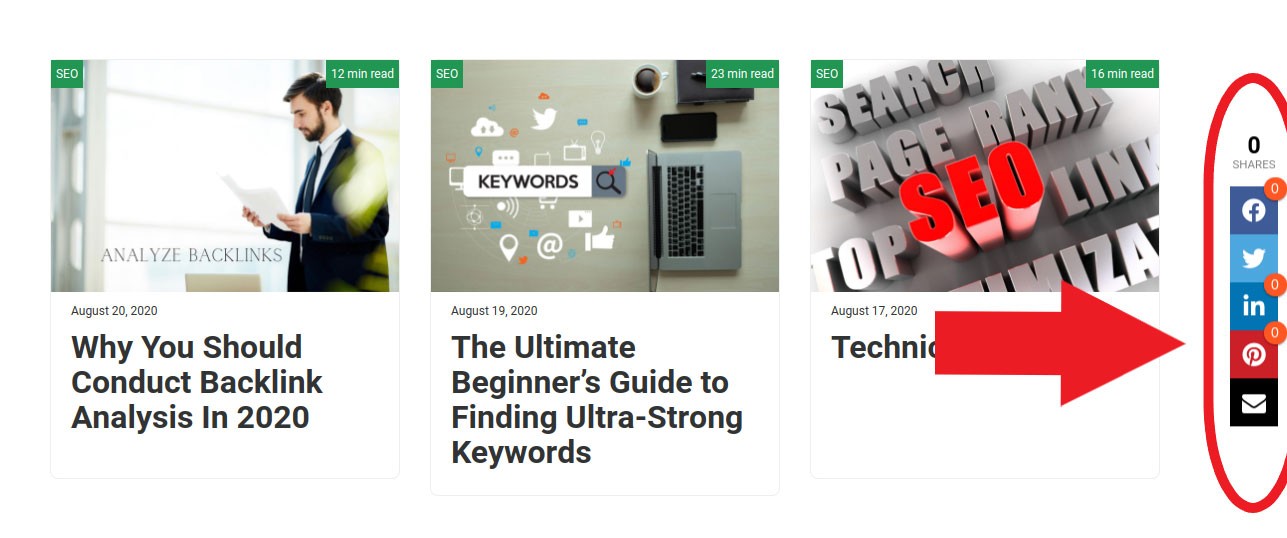
Use Data and Analytics
Collecting and using the data and analytics your eCommerce store and website receive is invaluable. By collecting user data and monitoring analytics, gauge which products you have that are most popular, most viewed, and most purchased.
Discover more about which pages on your website receive the most hits and the longest visits. Use analytics to carve out site maps and traffic patterns to learn more about your own site’s navigation and what you can do to improve it with future updates and designs. For example:
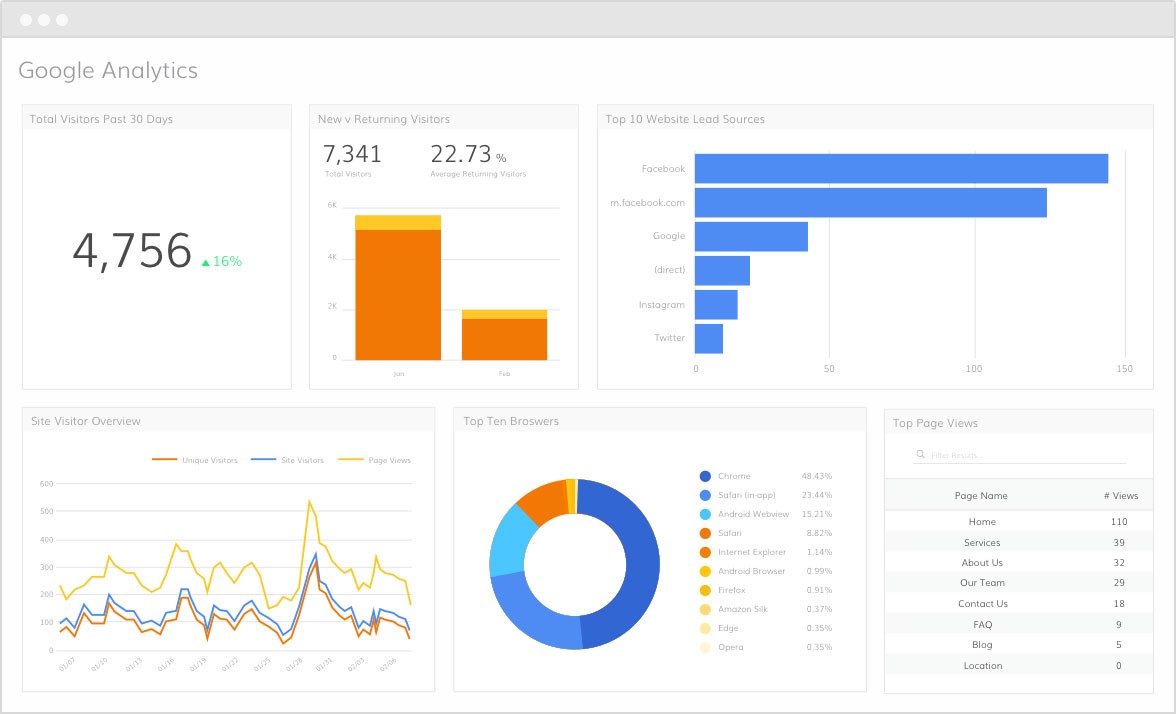
(Image Credit: Grow)
Ecommerce Marketing Strategy Tips
Once you have an official storefront and social media presence, you can begin implementing various marketing strategy tips and tricks that can help boost the overall sales and success of any eCommerce storefront.
Focus on Email Marketing
Focusing on email marketing is often key for those running and managing eCommerce stores. Using an email marketing strategy, you can implement A/B testing to determine the messaging and copy that works best to drive traffic, referrals, and sales to your store.
Use email marketing to get to know more about your current subscribers and readers and to discover the best tricks to increase your open rates as well as your CTR, or click through rate. Use interchangeable CTAs, or calls-to-action, to find the voice that is best for your eCommerce brand and the goals you have set for your store.
Reduce Shopping Cart Abandonment
If one of your main goals for your eCommerce store is to reduce or minimize shopping cart abandonment rates, consider what you may need to change to implement in your marketing strategies to succeed.
Use and study incoming data as well as the analytics you collect to determine when and where your users are exiting your website and abandoning their shopping carts. Are there specific products your users are abandoning? If so, why might they be leaving your website altogether? Are your price points too high, or are there alternative providers online that offer the products you are selling cheaper or with better shipping deals? You can also send out cart abandonment emails to lure a customer back in, for instance:
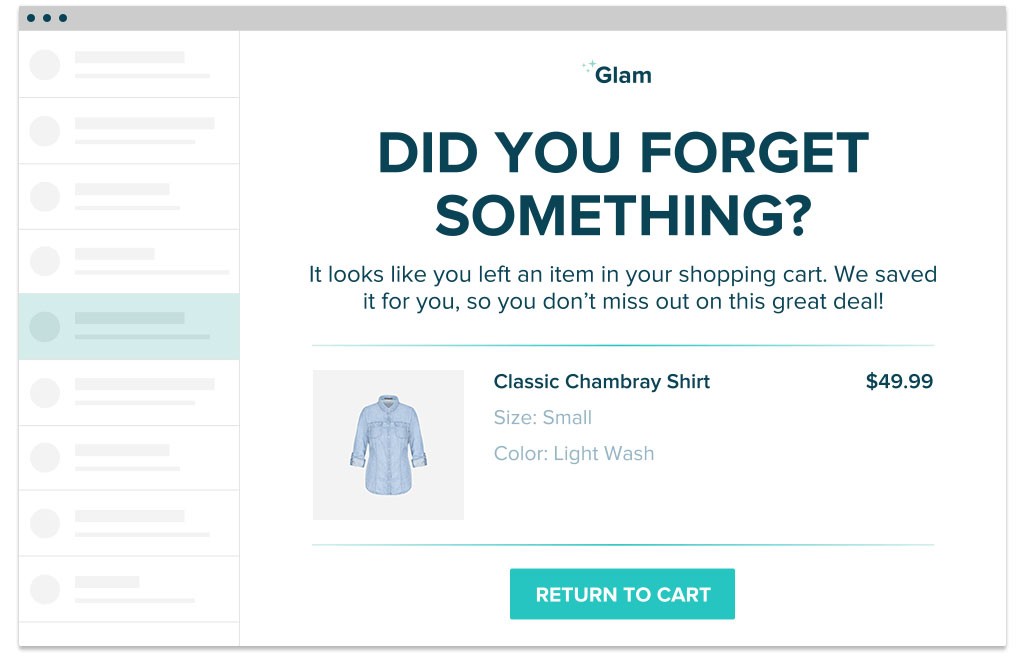
(Image Credit: Bronto)
Cross-Promotion and Upselling Opportunities
Use cross-promotion and upselling plugins or opportunities to drive more sales and increase the overall revenue you are capable of generating with your eCommerce store.
Whether you implement your own cross-promotion links or if you use a plugin for a shop solution such as WooCommerce or Shopify, using upselling and cross-promotions can significantly increase traffic and the time spent on your website altogether. Using upselling plugins or cross-promotion links within each of your product pages can help to direct traffic while also providing additional insight into how others navigate your website with data and analytics.
We hope that you found this article useful.
If you want to know more interesting about your site health, get personal recommendations and alerts, scan your website by Diib. It only takes 60 seconds.
Generate Testimonials and Product Reviews
One way to help solidify your reputation as a professional eCommerce brand and storefront is to request and collect product reviews and testimonials. If you are just starting out, consider reaching out to past satisfied customers or clients for testimonials and reviews. Many storefront and eCommerce solutions today also provide plugins for allowing on-site reviews and testimonials without requiring manual effort or work on your end. Consider trying something like this:
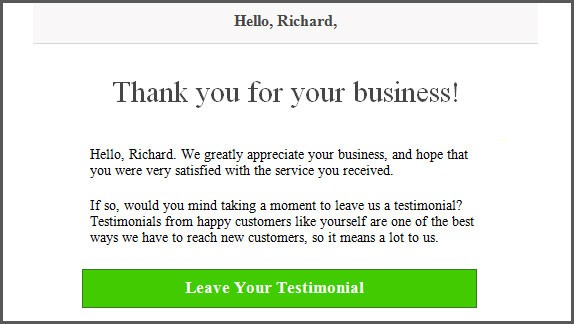
(Image Credit: Hello Testimonials)
Host Contests and Giveaways
When you are looking for ways to drastically increase the traffic your website receives and the engagement your brand receives on social media, host a contest or giveaway. Hosting contests and giveaways not only help to promote and boost your online visibility, but also provide others with an opportunity to try your products or services.
Use contests and giveaways that you host to promote your current product line and to garner feedback from those who are genuinely interested in learning more about your business and brand. When hosting contests, require sharing and engagement on social media to qualify, helping to spread the word about your eCommerce store while simultaneously boosting the SEO for your website and brand. Contests and giveaways are also optimal for sharing your product if you are just entering the market or the eCommerce industry for the first time. Here is an example of a blanket company hosting a giveaway of one of their products:

(Image Credit: My Minx Blankets)
Implement a Rewards or Loyalty Program
Implementing and creating a rewards or loyalty program is another way to help your eCommerce store and brand to stand out amongst your competition. When online shoppers are browsing for a new company or brand they can trust, they may look for deals and opportunities that are unavailable anywhere else.
by offering a loyalty or rewards program, you can incentivize users to complete their purchase with a promise of earning something in return. Using a reward or loyalty program is always a way to establish a bigger and more professional online presence as you expand and scale your business.
Diib®: eCommerce Marketing Statistics You Can Use!
Although becoming a successful eCommerce marketer requires more than a great idea and high-quality products to sell online, it is possible with enough research into the consumers and audience you intend to reach. By learning various e marketing techniques in e commerce and putting them to use with your own eCommerce storefront, maximize your reach and your ability to truly remain profitable and successful for years to come.
Diib Digital offers a comprehensive User Dashboard where you can keep track of your eCommerce campaign. This will allow you to adjust and fine tune your path with ease. Here are some of the features we’re sure you’ll appreciate:
- Keyword, backlink, and indexing monitoring and tracking tools
- Google Core Algorithm monitoring
- Link auditing
- Alerts to broken pages where you have backlinks (404 checker)
- Objectives and alerts that guide you to strengthen your website
Click here for your free 60 second site analysis and industry ranking or call 800-303-3510 to speak with one of our Growth Experts.
FAQ’s
These are strategies that focus on pulling in those people looking for specific products. This is done by actively using outbound strategies that help people to want to find you and your product/service.
Ecommerce online stores like Amazon, Flipkart, Shopify, Myntra, Ebay, Quikr, Olx are examples of E-commerce websites. By 2021, global retail e-commerce can reach up to $27 Trillion.
Ecommerce is all about combining 3 different systems: 1) a web server that can manage an online store with accompanying transactions, 2) a database system that can keep track of inventory, and 3) a warehouse where goods are stored and sent out.
There are many ways. 1) If you haven’t already, start an email list and utilize it. 2) Boost your social media presence. 3) Optimize your website for SEO. 4) Create quality, interesting content. 5) Google Ads can be a great resource. 6) Partner with complimentary brands.
Ecommerce websites can range from $3,000-$27,000. If you want high functionality, you’ll be at the top end of the budget, if you can make due with a bare bones site, then $3,000 should cover it.




Abhay says:
I’m going to share this article with my friends. They’ll love it too!
Rohan says:
best content for us